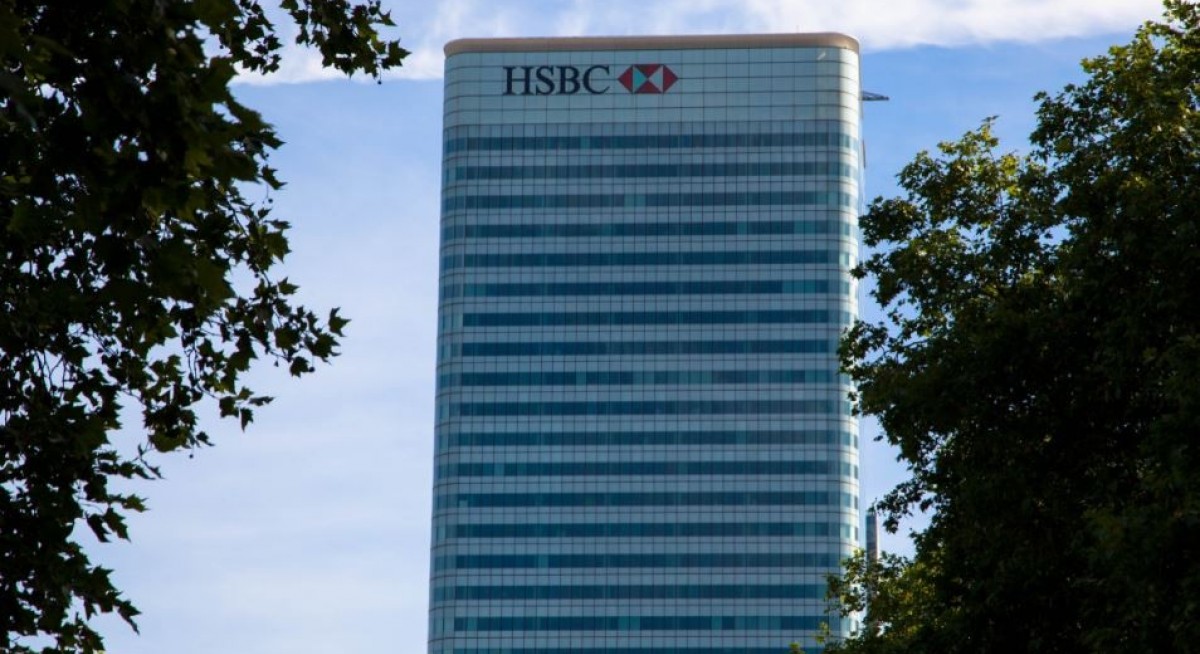What HSBC does with its retained earnings has long been a contentious topic. Ping An Insurance Group Co. of China, a large shareholder, as well as the bank’s retail investors in Hong Kong, have actively advocated for better dividend payouts. But its new management obviously has something else in mind. HSBC’s share stumbled more than 6% in Asia hours.
Speaking on Bloomberg TV, HSBC CEO Georges Elhedery tried to promote the deal, saying that the purchase “delivers greater shareholder value than buybacks”, and brushed away concerns over Hang Seng’s exposure to distressed commercial real estate loans in Hong Kong.
The deal has “nothing to do” with the bad debt situation, Elhedery said, and is “very much” an investment for growth. After all, one doesn’t pay 1.8 times price-to-book for a bank saddled with poor lending.
These comments alone are unlikely to convince investors that top management didn’t take into account Hang Seng’s troubled corporate loan book, however. Roughly half of HSBC’s Hong Kong CRE exposure comes from Hang Seng. The parent has been pushing its subsidiary to clean up its pile of bad debt, reshuffling top management along the way. HSBC reported expected credit losses of $1.1 billion in the second-quarter, about US$700 million higher than a year earlier.
See also: Commerzbank’s Orlopp urges EU to keep up with US on deregulation
Once fully privatised, Hang Seng will have no excuse to dither. The lender can sell its distressed loans quickly, while HSBC plugs any capital shortfalls internally — and out of public limelight. This is concrete and tangible, while all the talk of value creation by cross-selling HSBC’s wealth management products to Hang Seng’s retail clients rings hollow.
Hang Seng certainly has a lot of bad debt to dispose of. In the first half, 20% of its Hong Kong CRE loans became impaired, a 5-percentage-point jump from 2024. With office vacancies hovering at 17% and rent at a 15-year low, the outlook is not any brighter.
But by bringing Hang Seng fully under its umbrella, HSBC will face more investor scrutiny over its Hong Kong exposure. Most of its trouble there is due to Hang Seng, which drove the bulk of the parent’s potential credit losses. According to JP Morgan, if we exclude Hang Seng’s U$3.2 billion bad debt, HSBC’s impaired loan ratio will decrease to 6.7%, versus the reported 16.1%. Out of the parent’s US$32 billion total CRE exposure in Hong Kong, about US$1.5 billion substandard and impaired loans had more than 70% loan-to-value ratio, primarily with Hang Seng. In other words, don’t expect much back if there’s a CRE crisis in the financial centre.
See also: Hong Kong family offices numbers jump 25% since 2023 in wealth hub boost
For Hong Kong’s financial regulators, this deal should be met with relief and cheer. They’ve been worried about local lenders’ exposure to distressed real estate developers. For instance, as of last June, the city’s mega-builder New World Development Co. accounted for 7% of the city’s total CRE loan books, but nearly 70% of its borrowings were unsecured. Having a resourceful parent — in this case, HSBC — take full responsibility over a troubled child might just help maintain Hong Kong’s financial stability.
Granted, faster bad debt disposal may dent HSBC’s short-term earnings and cash returns, but could benefit the bank in the long run. The more relevant question is whether HSBC is paying the right price. An acquisition cost of 1.8 times price-to-book values Hang Seng 60% more than local peer BOC Hong Kong Holdings, and only 20% shy of Singapore’s most valuable bank, DBS Group Holdings. Yet looking at its corporate loan books, Hang Seng is no trophy.
As such, it is valid to ask whether HSBC is merely saving mianzi, or “face” — a Chinese saying for maintainingdignity in public — and as a result, overpaying. Shareholders certainly disagree with how Elhedery is spending the bank’s US$14 billion cash.




